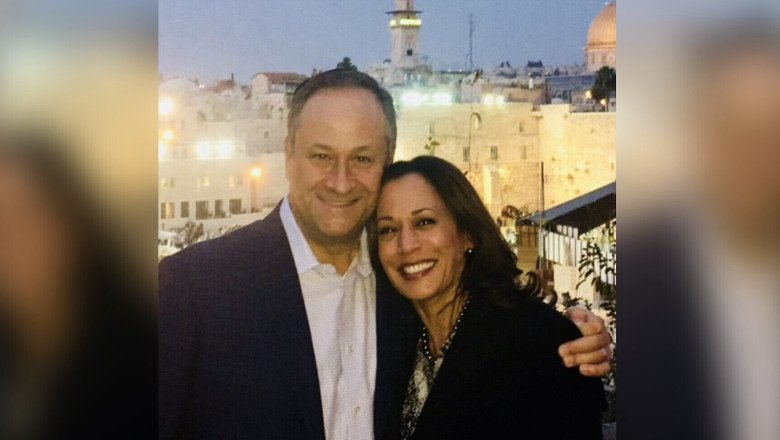
views
Harris has been advocating for a more balanced U.S. stance on the conflict, emphasizing the need for humanitarian aid and protection for civilians in Gaza. Her recent calls for a ceasefire have resonated with progressive factions and Muslim communities, who have been vocal about the humanitarian crisis in the region.
The shift in support is significant given the historical alignment of Muslim voters with the Democratic Party. Harris's stance represents a nuanced position that seeks to address the concerns of both pro-Israel and pro-Palestinian advocates within the party. Her approach includes condemning Islamophobia while also supporting Israel's right to defend itself, a stance that has garnered both praise and criticism from different quarters.
The endorsement from the Muslim group is seen as a strategic move to strengthen Harris's position within the party and appeal to a broader base of voters. This backing could prove crucial as the Democratic National Convention approaches, where delegates will play a pivotal role in shaping the party's platform and candidate selection.
Harris’s proactive engagement on this issue highlights the ongoing struggle within the Democratic Party to balance its traditional support for Israel with the growing demand for Palestinian rights and humanitarian considerations. Her efforts to align with progressive constituencies reflect the evolving dynamics within the party and the broader political landscape.
This support from the Muslim group not only boosts Harris's credentials but also underscores the increasing influence of diverse voter blocs in shaping U.S. political discourse. The outcome of these internal party dynamics will likely have significant implications for the Democratic Party's future direction and its approach to foreign policy, particularly in the Middle East.
In sum, Harris's recent actions and the endorsement from a key Muslim group indicate a strategic realignment within the Democratic Party, aiming to address the complex and often contentious issues surrounding the Israel-Gaza conflict. This move is poised to impact the party's unity and electoral prospects as it navigates the intricate balance of supporting both Israeli security and Palestinian humanitarian needs.
Arabian Post Staff -Dubai
Vice President Kamala Harris has secured critical backing from a prominent U.S. Muslim group as pro-Gaza delegates push for greater influence within the Democratic Party. This development comes at a time when the party grapples with internal divisions over the Israel-Gaza conflict.
Harris has been advocating for a more balanced U.S. stance on the conflict, emphasizing the need for humanitarian aid and protection for civilians in Gaza. Her recent calls for a ceasefire have resonated with progressive factions and Muslim communities, who have been vocal about the humanitarian crisis in the region.
The shift in support is significant given the historical alignment of Muslim voters with the Democratic Party. Harris’s stance represents a nuanced position that seeks to address the concerns of both pro-Israel and pro-Palestinian advocates within the party. Her approach includes condemning Islamophobia while also supporting Israel’s right to defend itself, a stance that has garnered both praise and criticism from different quarters.
The endorsement from the Muslim group is seen as a strategic move to strengthen Harris’s position within the party and appeal to a broader base of voters. This backing could prove crucial as the Democratic National Convention approaches, where delegates will play a pivotal role in shaping the party’s platform and candidate selection.
Harris’s proactive engagement on this issue highlights the ongoing struggle within the Democratic Party to balance its traditional support for Israel with the growing demand for Palestinian rights and humanitarian considerations. Her efforts to align with progressive constituencies reflect the evolving dynamics within the party and the broader political landscape.
This support from the Muslim group not only boosts Harris’s credentials but also underscores the increasing influence of diverse voter blocs in shaping U.S. political discourse. The outcome of these internal party dynamics will likely have significant implications for the Democratic Party’s future direction and its approach to foreign policy, particularly in the Middle East.
In sum, Harris’s recent actions and the endorsement from a key Muslim group indicate a strategic realignment within the Democratic Party, aiming to address the complex and often contentious issues surrounding the Israel-Gaza conflict. This move is poised to impact the party’s unity and electoral prospects as it navigates the intricate balance of supporting both Israeli security and Palestinian humanitarian needs.
https://thearabianpost.com/harris-gains-support-amid-pro-gaza-advocacy-in-democratic-party/

























Comments
0 comment